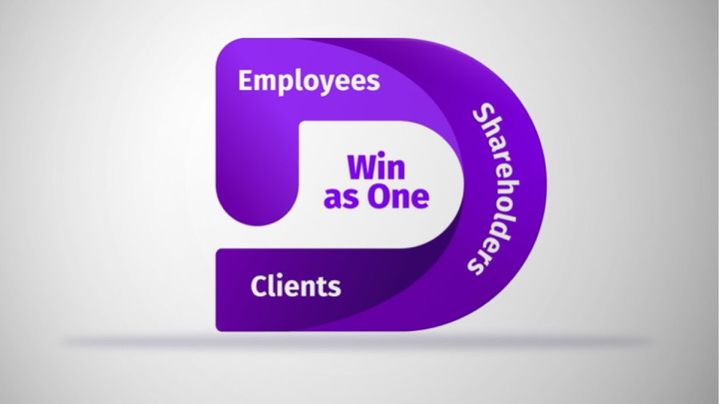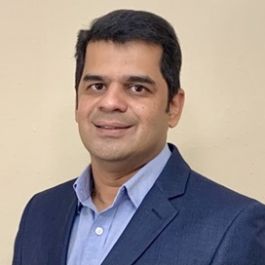There is one phrase that can send an instant shiver down any product team’s spine: “Well that’s got to be an easy fix, just add it.”
Most likely — no, it’s not an easy fix.
“It’s really easy for us as sellers to think that,” Jason Clucas, director of sales at DFIN, pointed out.
Clucas noted this while telling Built In about the launch of DFIN’s New Venue data room product, a project that succeeded largely because of how closely the sales and product teams ended up working together. Knocking down assumptions about what would be “an easy fix” — or ones that were less complicated than expected — was an eye-opening experience for Clucas and the sales team.
“There are things in a sales world that I often took for granted from a product perspective,” Clucas added. “It’s not as easy as the team here at DFIN makes it look.”
But Parag Kulkarni, director of software engineering, did make it look easy.
Kulkarni and Clucas both work on DFIN’s Venue product, virtual data room software to help accelerate deals in a way that’s affordable and secure. The New Venue data room product launched earlier this year as a renovation to the previous product, which Clucas explained was “starting to show its age.” Now, the re-tooled data room has an improved user experience making the diligence process faster and more productive — thanks to the close work of Kulkarni’s product team and Clucas’ sales team, which is not uncommon at DFIN.
What does DFIN do?
DFIN is a global risk and compliance solutions company. DFIN provides domain expertise, software and data analytics for clients’ business and investment lifecycles.
Both note that the New Venue data room project is just one example of the larger team’s core ethos in action: Win as One. That’s exactly what the development phase of the project — when the sales, customer services and product management teams were all working in lockstep — was like.
A big part of what made the alignment possible was Kulkarni’s guidance, helping the teams not only think about the “what” but also the “why” of each step. The idea helped the engineering team keep a pulse on what was truly important for the product. Each feature was frequently demoed with the sales and service teams, received feedback and altered to smooth out the user experience.
“It was an iterative process, driven by collaboration between all teams, that helped us refine the product to meet user expectations,” Kulkarni said, noting that it taught all of them the importance of adaptability, open communication and teamwork.
Communication at the Core
Staying open to collaboration and continuous communication were at the core of the New Venue data room project.
“The experience reinforced the value of continuous improvement and resilience, highlighting how collaboration across departments can lead to successful outcomes,” Kulkarni continued.
The biggest win that Kulkarni experienced personally was witnessing the growth and cohesion of the team.
“Leading this project allowed me to see firsthand how effective communication and mutual support can drive success,” Kulkarni said. “It was incredibly rewarding to see team members from different departments come together, share their expertise and contribute to a common goal.”
The successful project is proof of how Kulkarni’s understanding of team culture has evolved.
“Initially, I viewed team culture primarily as a set of practices and rituals that foster collaboration and productivity,” he said. “However, I’ve come to realize that it’s much deeper — it’s about creating an environment where every team member feels valued, supported and empowered to contribute their best work.”

Today, Kulkarni tries to create a team culture of psychological safety.
“Ensuring that team members feel safe to express their ideas, take risks and make mistakes without fear of judgment has become a cornerstone of our culture,” he added. “This shift has led to greater innovation and more open communication within the team.”
He noted that the experience of the New Venue data room project was a good example of the collaboration and an inclusive culture in action — adding to a Venue team culture of psychological safety.
“It was a powerful reminder that when we work together, we can achieve remarkable outcomes,” Kulkarni said.
Clucas agreed. “I’ve always found that the best culture that I’ve enjoyed working for is one where open honesty and trust exist simultaneously,” he noted.
Clucas explained that it’s one thing to communicate when things are going well, “and it’s another when it’s not so great,” he added. “But to continue to provide your team with as much information as possible for them to feel supported and driven in the role is paramount.”
For the Venue team, the results speak for themselves.
When Clucas first joined as a sales representative, DFIN was at roughly $4 million in revenue in the New England territory. Since then, he and his team were able to grow the business to over $12.5 million in three years.
“Selling is a fickle job at any company,” Clucas said. “When it’s good, it’s great. When it’s not, it can really wear on a person.”
Overall, the Venue team has clocked 20 to 30 percent growth year over year. To Clucas, it’s all about learning from one another and communicating clearly.
“As a younger seller I just wanted more things to sell,” Clucas concluded. “I’ve learned over time that being educated to the point of becoming a subject matter expert not just on the product or products I am selling but the industry I am selling to are what lead to success. DFIN’s culture of continuous learning has made that clear in the success that both I and the Venue team continue to have.”







